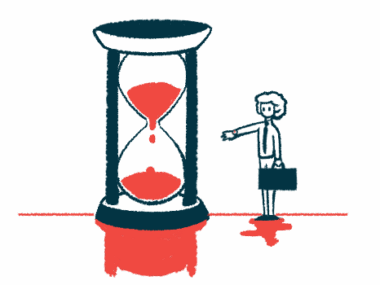6 Coping Strategies to Help Process an ALS Diagnosis
Written by |

Being diagnosed with amyotrophic lateral sclerosis (ALS) can be devastating for patients and their families and friends, but there are ways to move forward. We’ve put together a list of coping strategies to help you get through the first few weeks with help from the Mayo Clinic and alswindsor.ca.
Allow time and space to grieve
Everyone will need time to absorb the information given to them about the disease and to come to terms with the reality of ALS. Some people may take longer than others, so allow people time to process the diagnosis. It’s OK to feel angry, sad, depressed and to grieve and mourn.
MORE: Soccer coach mom talks about her life with ALS
Stay positive
Although ALS is a fatal disease and doctors usually give patients a life expectancy of between three and five years post-diagnosis, many ALS patients live 10 years or longer. In addition, science and medicine are constantly moving forward, coming up with new treatments, drugs, and equipment which can make life more comfortable and possibly extend your lifespan.
MORE: Find out how assistive technology is helping ALS patients get the most out of life
Look past physical changes
ALS will change your body and eventually take away your mobility, but the physical effects of the disease won’t change the person you are. The disease won’t rob you of your mind, your thoughts, your soul and your love for others. You will still be you!
MORE: Discover seven facts about ALS you might find interesting
Join a support group
Joining an online or local support group can help immensely with your ALS journey. Other patients will be able to offer advice and relate to what you’re going through. Support for family members is also very helpful.
MORE: Discover six ALS therapies that can improve quality of life
Learn as much as you can about ALS
Learning as much as you can about how ALS progresses will help you plan and make decisions about your future care. Speak to your health care team and your family about the available options and what you ultimately want further down the line.
MORE: Learn about the role of motor neurons in ALS
Be open and honest
It’s often difficult for children to understand the concept of ALS, but having an open and honest conversation about the disease and how it’s going to affect you is important. This will make them feel included and make sure they’re aware of the situation.
MORE: Did you know that technology can improve communication for ALS patients?
ALS News Today is strictly a news and information website about the disease. It does not provide medical advice, diagnosis or treatment. This content is not intended to be a substitute for professional medical advice, diagnosis, or treatment. Always seek the advice of your physician or other qualified health provider with any questions you may have regarding a medical condition. Never disregard professional medical advice or delay in seeking it because of something you have read on this website.











